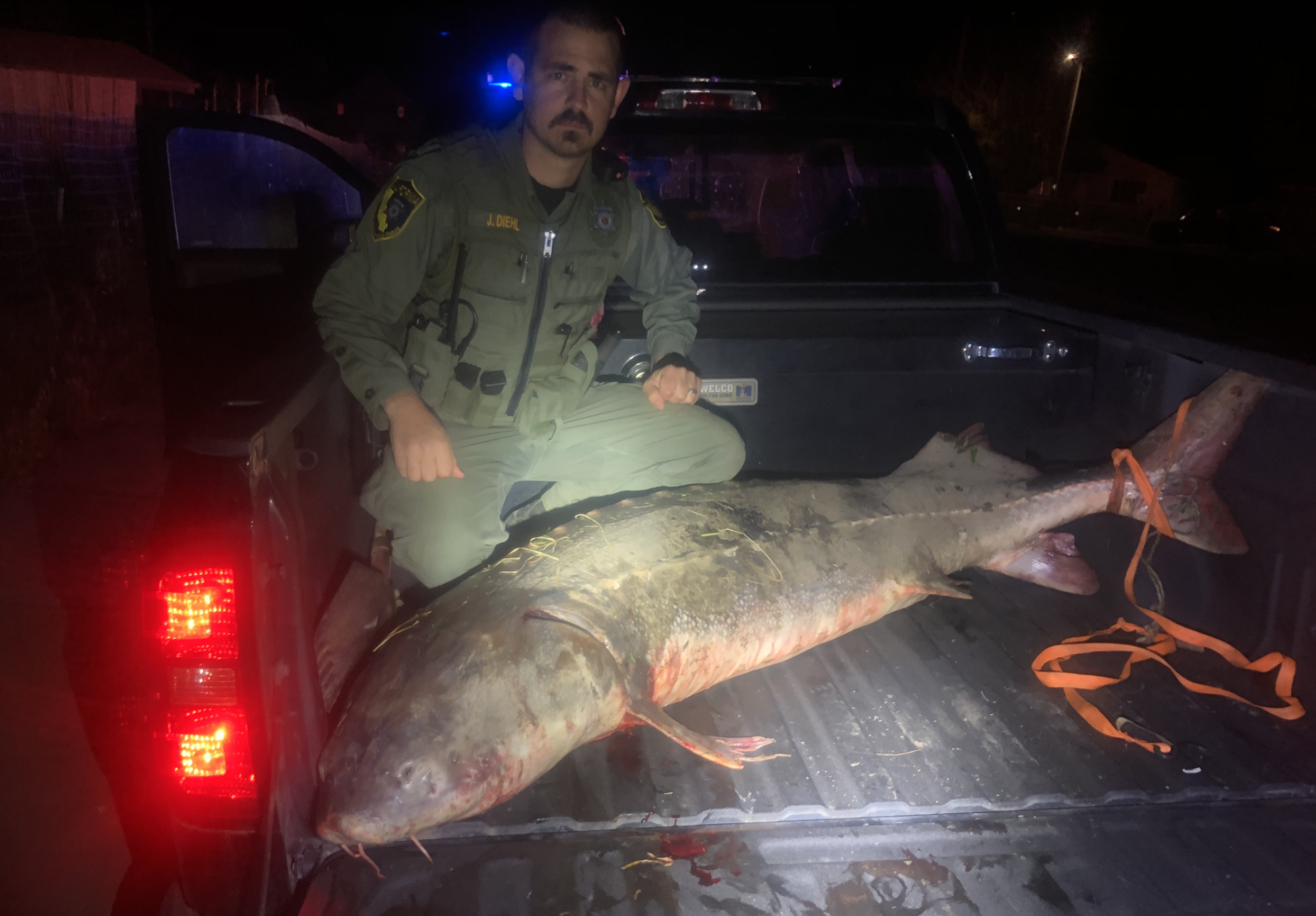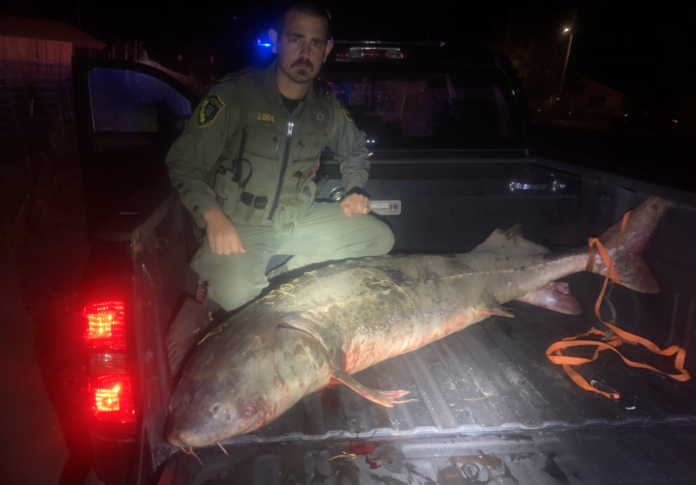The California Department of Fish and Wildlife arrested nine men tied to a large sturgeon poaching operation. The arrests came after the conclusion of a year-long wildlife investigation that uncovered individuals unlawfully killed and sold sturgeon and other wildlife.
California lists both white and green sturgeon as species of special concern. This status means fishermen can only take white sturgeon while in possession of a state-issued report card and permit. Individuals may only bag one per day and three per year, and the fish must be within 40-60 inches. Green Sturgeon are not allowed to be taken or possessed under any circumstances.
In May 2021, CDFW officials began investigating Andrew Chao, 31, and Ay Pou Saechao, 35, for illegally catching sturgeon, removing their eggs, and selling them to a family in San Francisco. Officials suspected the Petryanik family of processing the sturgeon roe into caviar and selling it on the black market.
Wildlife officials renewed their investigation of Chao and Saechao in January, believing the duo illegally poached sturgeon from Knights Landing on the Sacramento River. On March 14, law enforcement found Chao in possession of an 85.5-inch white sturgeon.
“They found this giant behemoth sturgeon in the back of the guy’s hatchback,” Foy told Rolling Stone. “Because it was so big, the head of the sturgeon was pushed up against the driver’s seat. The whole fish was bent so it could fit into the trunk.”

Officers arrested Chao on possession of an oversized sturgeon and suspicion of poaching. The fish was still alive when the officers discovered it in Chao’s vehicle. They were able to return it to the water unharmed. During the investigation, officers discovered a link between the two poachers and seven other suspects in a different ongoing poaching case.
On March 30, officers served eight search warrants. The investigation implicated another suspect for suspicion of selling red abalone and Dungeness crab on the illegal market. Officials believe the suspects poached at least 36 sturgeon, caught and used juvenile salmon as bait, poached and sold abalone, and sold sport-harvested crabs on the illegal wildlife market. Wildlife officers also discovered five unlawfully possessed deer, illegal firearms—including one without a serial number—illegal narcotics, and counterfeit currency.
“I am proud of the dedicated wildlife officers who spent countless hours investigating this wildlife trafficking case to protect our native sturgeon population,” said David Bess, CDFW deputy director and chief of the law enforcement division. “We take it seriously when poachers commercialize our wildlife, and we will continue to do everything we can to bring these individuals to justice.”
None of the suspects have been officially charged as of this time.
Known throughout the world for their breathtaking size and length, sturgeon are highly sought after. Viral images of the species can be found across the internet, including fish that have been caught in sizes above 500 hundred pounds and greater than 10 feet long.
The International Union for Conservation of Nature lists sturgeon as one of the most endangered species groups in the world. Poachers sell these massive fish on the illegal wildlife market for the high value of their meat and roe, which can be processed into caviar. The species cannot pass fish ladders, making sturgeon susceptible to changes in river flow or hydrology. The current drought conditions in California further complicate this issue. Sturgeon also mature late and have a long reproduction time, so changes in the environment pose additional issues.
“We are experiencing a historic-level drought, and it’s creating huge problems for both our salmon and our sturgeon populations,” CDFW wildlife officer Patrick Foy told Rolling Stone. “And we have poachers on top of the drought pressure creating miserable conditions for the sturgeon.”
Recent efforts from states to stop poaching and illegal wildlife crime, including Oregon, which recently hired its first anti-poaching prosecutor, are positive steps toward combating this global issue.
Estimates of illegal wildlife crime total $12 billion in lost revenue to governments. This criminal activity also perpetrates species loss and introduces invasive species into the environment. Stopping illegal wildlife trade operations will help protect the future of wildlife and the environment in the country.


